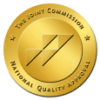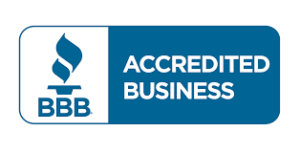Heroin Detox in Tennessee
Heroin Detox in Tennessee
Facing heroin addiction can feel overwhelming, leaving many individuals feeling trapped and unsure where to turn. The first and most crucial step toward recovery is detoxification, which removes heroin and other substances from your body in a safe and medically supervised setting. At Tennessee Detox Center, we specialize in heroin detox in Tennessee, providing compassionate, professional care to help you begin your recovery journey with confidence.
Safe and Supportive Heroin Detox in Tennessee
Our Tennessee heroin detox program offers comprehensive, individualized treatment designed to manage withdrawal symptoms safely and comfortably. Our team of experienced medical professionals provides 24/7 monitoring, medication-assisted treatment when necessary, and emotional support to ensure you stay stable and motivated throughout detox.
At Tennessee Detox Center, every client receives a personalized plan that includes:
- Medically supervised detox to manage heroin withdrawal safely.
- Counseling and emotional support to prepare for long-term recovery.
- Aftercare planning to connect you with ongoing treatment and resources in Tennessee.
We understand that no two recovery journeys are alike, which is why our programs are designed to meet your unique physical and emotional needs.
What Is Heroin Detox?
The Importance of Detox for Heroin Addiction Recovery
Detox plays a vital role in overcoming heroin addiction. Managing withdrawal symptoms is crucial, as they can range from mild discomfort to severe complications. By undergoing detox, individuals benefit from several key aspects:
- Medical Supervision: Medical professionals monitor health during detox, ensuring safety and comfort. This supervision offers immediate care for any complications that arise.
- Symptom Management: Healthcare providers administer medications to ease withdrawal symptoms, making the process more bearable. Relief from symptoms fosters a more positive outlook on recovery.
- Psychological Support: Counseling services during detox help address underlying emotional issues. Individuals gain tools to manage cravings and develop coping strategies.
- Foundation for Recovery: Completing detox prepares individuals for ongoing treatment. It allows a smooth transition to rehabilitation programs designed to address addiction’s root causes.
Choosing Tennessee Detox Center in Tennessee ensures access to personalized detox plans tailored to your unique needs. The professional team offers the support necessary for a successful start on the road to recovery.
Signs and Symptoms of Heroin Addiction
Recognizing the signs and symptoms of heroin addiction is crucial for timely intervention. These indicators fall into three main categories: behavioral, physical, and mental.
- Borrowing Money: You may find yourself trying to borrow or steal money to fund your habit.
- Neglecting Responsibilities: Failure to meet personal responsibilities often occurs, including not attending work or school.
- Deception: Lying or being deceptive about your whereabouts is common.
- Social Isolation: Withdrawing from friends and family can indicate a growing addiction.
- Neglected Hygiene: A noticeable decline in personal appearance and hygiene often appears.
- Fatigue: Constant exhaustion is a common symptom.
- Itchiness: Persistent itchiness can be linked to drug use.
- Dry Mouth and Watery Eyes: You may experience dry mouth along with watery eyes.
- Runny Nose: A runny nose often accompanies withdrawal symptoms.
- Weight Loss: Significant and unexplained weight loss may occur.
- Constipation: Consistent digestive issues like constipation are frequent.
- Constricted Pupils: You’ll notice a change in pupil size, with constricted pupils being a classic sign.
- Sleep Issues: Inconsistent sleep patterns can emerge.
- Skin Issues: Scars and sores, especially from injected use, may become evident.
- Concentration Problems: Inability to concentrate or focus presents challenges in daily activities.
- Poor Judgment: You might make poor decisions due to impaired judgment.
- Forgetfulness: Frequent forgetfulness can occur as addiction progresses.
- Paranoia: Feelings of paranoia are not uncommon.
- Mood Swings: Unpredictable mood swings can affect personal relationships.
- Anxiety: High levels of anxiety often accompany heroin addiction.
Understanding these signs and symptoms is essential for recognizing when you or someone you care about needs help. If you notice any of these issues, it’s best to reach out to our heroin detox center right away.
Your journey toward healing begins today.
Tennessee Heroin Addiction Statistics: Understanding the Growing Need for Detox
Heroin addiction significantly impacts Tennessee and its communities. According to the 2022–2023 National Survey on Drug Use and Health (NSDUH), approximately 15,000 individuals aged 12 and older in Tennessee reported using heroin in the past year. Though heroin use represents a smaller percentage compared to other substances, its highly addictive nature and strong link to overdose deaths make it a critical public health issue. The widespread presence of synthetic opioids like fentanyl—often mixed with heroin—has further intensified the risks.
Understanding these local statistics is essential to grasp the full extent of the heroin crisis in Tennessee. It’s also one of the reasons Tennessee Detox Center offers comprehensive services, including medically supervised detox, upscale residential treatment programs, and aftercare planning—serving individuals in Tennessee and across the state.
Rising Prevalence of Heroin Use in Tennessee
In the Nashville area, 0.34% of individuals aged 12 or older used heroin the past year. This percentage slightly exceeds the national average of 0.30%. Approximately 19,000 individuals in Tennessee used heroin within the last year, highlighting the pervasive nature of this addiction.
Opioid Crisis and the Shift to Heroin Use in Tennessee
Around 70,000 individuals in Tennessee face opioid addiction, including heroin. This figure illustrates the broader opioid crisis affecting the state. Middle Tennessee communities particularly suffer from rising heroin addiction rates in recent years, emphasizing the urgent need for effective heroin addiction treatment options.
Increase in Heroin-Related Deaths Across Tennessee Counties
In 2021, heroin played a role in 34% of overdose-related emergency department visits in Tennessee. In comparison, non-heroin opioids accounted for 61% of visits, while stimulants accounted for 5%. This data indicates a troubling shift from heroin towards synthetic opioids and stimulants in the region. Understanding these trends is crucial for addressing the ongoing crisis and ensuring support for those in need.
What to Expect During Heroin Detox at Tennessee Detox Center
 Safe and Comfortable Detox Environment
Safe and Comfortable Detox Environment
Our Detox centers in Tennessee create a secure setting tailored for your comfort during withdrawal. At our high-end rehabilitation facilities, you can find private rooms, calming and luxurious aesthetics, catered meals, and supportive staff to help ease physical and psychological discomfort. This environment plays a vital role in your detox, allowing recovery to begin a nurturing space.
 24/7 Medical and Emotional Support
24/7 Medical and Emotional Support
Continuous medical supervision stands as a cornerstone of heroin detox at Tennessee Detox Center. Trained professionals monitor your health at all hours to manage potential complications and adjust treatments as necessary. Expect individualized care plans tailored to your specific withdrawal symptoms. Emotional support is equally prioritized. Therapists are available to provide counseling sessions that address underlying mental health issues. This dual approach ensures you receive comprehensive care—nurturing both your physical and emotional well-being throughout the detox process.
Understanding the Causes of Heroin Addiction in Tennessee
Heroin addiction arises from a mix of genetic, environmental, and physical factors. These influences significantly affect the development of heroin use disorder.
Genetic Factors
- Research shows genetics significantly contribute to substance use disorders, including heroin addiction. Having biological parents with a substance use disorder increases the likelihood of developing addiction, even in children raised by non-addictive adoptive parents.
- Genetic predisposition to impulsivity also serves as a key risk factor for heroin use disorder. Impulsive individuals may engage in risky behaviors, leading them toward substance misuse.
Environmental Factors
- Environmental influences, including exposure to drug abuse in the community, also heighten the risk of heroin addiction. Factors like peer pressure, socioeconomic status, and living conditions play critical roles in substance use behavior.
- Trauma experienced during childhood, such as abuse or neglect, can create vulnerability to addiction later in life. Individuals with adverse childhood experiences often turn to substances as coping mechanisms.
Physical Factors
- Physical health issues, such as chronic pain or co-occurring mental health disorders, can lead to heroin addiction as a means of managing symptoms. Those dealing with untreated mental illnesses may resort to substance abuse for temporary relief.
- Withdrawal symptoms experienced when attempting to quit illicit substances can drive individuals back to heroin use. Understanding these triggers is essential during the detoxification process to ensure a safe and effective recovery.
Recognizing these causes and risk factors sets a foundational understanding of heroin addiction, making it vital for treatment strategies implemented at Tennessee Detox Center.
How Heroin Addiction Impacts Health and Daily Life in Tennessee
Heroin addiction significantly impacts both health and life, leading to severe physical and mental issues.
Impact of Heroin Use on Tennessee Families
- Heroin use causes liver and kidney disease, lung complications, and severe constipation.
- Intravenous users risk collapsed veins, abscesses, and soft-tissue infections, alongside blood-borne infections like hepatitis B, hepatitis C, and HIV.
- Heart infections, known as endocarditis, lead to damaged heart valves, with users facing severe blood infections.
- Dental problems, loss of appetite, menstrual and fertility issues in females, and loss of sex drive in males are common.
Emotional and Mental Health Consequences of Heroin Addiction
- Heroin addiction can result in anxiety, depression, and mood swings. These mental health struggles make recovery more difficult and necessitate comprehensive treatment.
- Users may experience problems with concentration and decision-making. Cognitive impairments contribute to risky behaviors that further endanger health and relationships.
- Ongoing use often leads to social isolation, which exacerbates mental health challenges. Rebuilding connections forms a critical component of effective recovery.
Social and Financial Challenges Linked to Heroin Addiction
- Relationships often suffer due to dishonesty and neglect of responsibilities, leading to the loss of friendships and family connections.
- Financial instability arises from spending money on heroin, resulting in job loss and mounting debt for many individuals.
- Legal issues frequently emerge from drug-related activities, such as possession or distribution, leading to further complications in life.
- Overall quality of life deteriorates as addiction progresses, highlighting the urgency for effective detoxification and rehabilitation at facilities like Tennessee Detox Center in Tennessee.
What Are the Benefits of Medically Supervised Heroin Detox in Tennessee?
Medical Supervision and Safety
Effective Management of Withdrawal Symptoms
Comprehensive Support Systems
Structured and Individualized Detox Plans
Access to Long-Term Recovery Resources
Community and Connection
Signs and Symptoms You Need Heroin Detox in Tennessee
When the body becomes dependent on heroin, stopping use triggers painful physical withdrawal symptoms. Common warning signs include:
- Severe muscle aches and joint pain
- Nausea, vomiting, or diarrhea
- Sweating, chills, and fever
- Runny nose or watery eyes
- Restlessness or constant yawning
- Intense drug cravings
If these symptoms occur within hours of your last dose, it may be time to seek medical heroin detox in Tennessee for safe stabilization and symptom management.
Heroin withdrawal also affects mood and mental stability. Many individuals experience:
- Anxiety and irritability
- Depression or hopelessness
- Agitation or panic attacks
- Insomnia or vivid nightmares
A Tennessee heroin detox center can provide 24/7 medical supervision and mental health support to manage both the emotional and physical side effects of detox.
If you’ve tried to quit heroin but can’t stay sober due to withdrawal symptoms, or if you use heroin daily to avoid feeling sick, professional detox is essential. Medically supervised heroin detox in Tennessee ensures a safer, more comfortable transition into ongoing recovery programs such as residential rehab or outpatient treatment.
Whether you’re searching for a “heroin detox near me” or a luxury detox center in Tennessee, our program offers compassionate, evidence-based care tailored to your needs. Our medical team provides round-the-clock monitoring, medication-assisted treatment, and aftercare planning to help you take the first step toward lasting sobriety.
Why Choose Tennessee Detox Center for Heroin Detox








Ready to Make a Change? Start Your Heroin Detox in Tennessee
Starting heroin detox in Tennessee is about more than overcoming addiction—it’s about reclaiming your life. With the right care, guidance, and medical support, you can break free from heroin and take control of your future.
If you or a loved one is struggling with heroin addiction, reach out to Tennessee Detox Center today. Our team is ready to help you take the first step toward lasting recovery through safe, effective, and compassionate detox services in Tennessee.
Frequently Asked Questions about Heroin Detox in Tennessee
Heroin detox is the process of managing withdrawal symptoms after stopping heroin use. It involves medical supervision to ensure safety, symptom management through medications, and psychological support. This critical step helps break physical dependence and lays the groundwork for further recovery.
Detoxification is essential because it helps individuals safely manage withdrawal symptoms, reducing the risk of relapse. It also provides the necessary support and foundation for ongoing treatment, facilitating the transition into recovery and aiding in rediscovering one’s potential.
Tennessee Detox Center offers comprehensive programs such as medically supervised detox, counseling, and aftercare planning. Their services are designed to provide a supportive environment, focusing on individualized care to help individuals overcome addiction and pursue a healthier life.
Signs of heroin addiction include behavioral changes, such as secretive behavior, physical symptoms like sudden weight loss, and mental symptoms such as mood swings or confusion. Recognizing these indicators can lead to timely intervention and support before the situation worsens.
The detox process at Tennessee Detox Center is structured and involves continuous medical supervision. Trained professionals monitor each individual’s health around the clock and provide personalized care plans. Emotional support and counseling are also integral parts of the detox experience.
Heroin addiction can arise from a combination of genetic, environmental, and physical factors. Risk factors include a history of substance abuse, mental health disorders, or exposure to trauma. Understanding these causes is crucial for effective treatment strategies.
Medical supervision during detox offers safety and security, ensuring that withdrawal symptoms are managed effectively. This supervision helps mitigate risks associated with detox, such as severe health complications, and provides emotional support through trained professionals.
After detox, individuals can access various resources, including therapy, support groups, and aftercare planning. These resources aim to foster emotional healing, build a support network, and enhance long-term recovery prospects in a safe and community-oriented environment.
Get Family Support Now
Supporting Families Through Recovery
We understand addiction affects the whole family. Our comprehensive family program helps rebuild trust and restore relationships.
Weekly Family Therapy Sessions
Educational Workshops
Support Groups
Communication Skills Training
Get Family Support Now


Addiction Group. (n.d.). Tennessee drug and alcohol statistics. Retrieved July 28, 2025, from https://www.addictiongroup.org/tennessee/drug-statistics/
Substance Abuse and Mental Health Services Administration (SAMHSA). (2023). 2023 ICCPUD state report: Underage drinking prevention – Tennessee. U.S. Department of Health and Human Services. Retrieved from https://library.samhsa.gov/sites/default/files/tennessee-iccpud-state-report-2023.pdf
Tennessee Alcoholic Beverage Commission. (2024). Report to prevent underage drinking, drunk driving, and other harmful uses of alcohol (PC 961). State of Tennessee. Retrieved from https://www.tn.gov/content/dam/tn/abc-documents/abc-documents/PC-961-2024-Report-to-Prevent-Underage-Drinking-Drunk-driving-and-Other-Harmful-Uses-of-Alcohol.pdf
National Institute on Alcohol Abuse and Alcoholism (NIAAA). (2012). Alcohol withdrawal syndrome. In S. C. Merrill & B. S. Frances (Eds.), The management of alcohol use disorders: A practical guide for clinicians (NIH Publication No. 12–5191). National Center for Biotechnology Information. Retrieved from https://www.ncbi.nlm.nih.gov/books/NBK64119/

Medically Reviewed By:
Dr. Vahid Osman, M.D.
Board-Certified Psychiatrist and Addictionologist
Dr. Vahid Osman is a Board-Certified Psychiatrist and Addictionologist who has extensive experience in skillfully treating patients with mental illness, chemical dependency and developmental disorders. Dr. Osman has trained in Psychiatry in France and in Austin, Texas. Read more.

Clinically Reviewed By:
Josh Sprung, L.C.S.W.
Board Certified Clinical Social Worker
Joshua Sprung serves as a Clinical Reviewer at Tennessee Detox Center, bringing a wealth of expertise to ensure exceptional patient care. Read More
The Joint Commission – The Gold Seal of Approval® signifies that Tennessee Detox Center meets or exceeds rigorous performance standards in patient care, safety, and quality. It reflects a commitment to continuous improvement and clinical excellence.

LegitScript Certified – Confirms that Tennessee Detox Center operates in full compliance with laws and regulations, and meets high standards for transparency and accountability in addiction treatment marketing.

BBB Accredited – Demonstrates ethical business practices, commitment to customer satisfaction, and a trusted reputation within the community.
Psychology Today Verified – Indicates that Tennessee Detox Center is listed on Psychology Today, a trusted directory for verified mental health providers and treatment centers.
HIPAA Compliant – Ensures all patient health information (PHI) is protected and managed in accordance with strict federal privacy and data security standards.
ASAM Member – Tennessee Detox Center is a proud member of the American Society of Addiction Medicine (ASAM), reflecting a commitment to science-driven and evidence-based treatment standards.

Rutherford County Chamber of Commerce – Membership signifies active participation in the local community and support for regional growth and civic collaboration.
Get Family Support Now
Supporting Families Through Recovery
We understand addiction affects the whole family. Our comprehensive family program helps rebuild trust and restore relationships.
Weekly Family Therapy Sessions
Educational Workshops
Support Groups
Communication Skills Training
Addiction Group. (n.d.). Tennessee drug and alcohol statistics. Retrieved July 28, 2025, from https://www.addictiongroup.org/tennessee/drug-statistics/
Substance Abuse and Mental Health Services Administration (SAMHSA). (2023). 2023 ICCPUD state report: Underage drinking prevention – Tennessee. U.S. Department of Health and Human Services. Retrieved from https://library.samhsa.gov/sites/default/files/tennessee-iccpud-state-report-2023.pdf
Tennessee Alcoholic Beverage Commission. (2024). Report to prevent underage drinking, drunk driving, and other harmful uses of alcohol (PC 961). State of Tennessee. Retrieved from https://www.tn.gov/content/dam/tn/abc-documents/abc-documents/PC-961-2024-Report-to-Prevent-Underage-Drinking-Drunk-driving-and-Other-Harmful-Uses-of-Alcohol.pdf
National Institute on Alcohol Abuse and Alcoholism (NIAAA). (2012). Alcohol withdrawal syndrome. In S. C. Merrill & B. S. Frances (Eds.), The management of alcohol use disorders: A practical guide for clinicians (NIH Publication No. 12–5191). National Center for Biotechnology Information. Retrieved from https://www.ncbi.nlm.nih.gov/books/NBK64119/

Medically Reviewed By:
Dr. Vahid Osman, M.D.
Board-Certified Psychiatrist and Addictionologist
Dr. Vahid Osman is a Board-Certified Psychiatrist and Addictionologist who has extensive experience in skillfully treating patients with mental illness, chemical dependency and developmental disorders. Dr. Osman has trained in Psychiatry in France and in Austin, Texas. Read more.

Clinically Reviewed By:
Josh Sprung, L.C.S.W.
Board Certified Clinical Social Worker
Joshua Sprung serves as a Clinical Reviewer at Tennessee Detox Center, bringing a wealth of expertise to ensure exceptional patient care. Read More
The Joint Commission – The Gold Seal of Approval® signifies that Tennessee Detox Center meets or exceeds rigorous performance standards in patient care, safety, and quality. It reflects a commitment to continuous improvement and clinical excellence.

LegitScript Certified – Confirms that Tennessee Detox Center operates in full compliance with laws and regulations, and meets high standards for transparency and accountability in addiction treatment marketing.

BBB Accredited – Demonstrates ethical business practices, commitment to customer satisfaction, and a trusted reputation within the community.
Psychology Today Verified – Indicates that Tennessee Detox Center is listed on Psychology Today, a trusted directory for verified mental health providers and treatment centers.
HIPAA Compliant – Ensures all patient health information (PHI) is protected and managed in accordance with strict federal privacy and data security standards.
ASAM Member – Tennessee Detox Center is a proud member of the American Society of Addiction Medicine (ASAM), reflecting a commitment to science-driven and evidence-based treatment standards.

Rutherford County Chamber of Commerce – Membership signifies active participation in the local community and support for regional growth and civic collaboration.
Compassionate Rehab Services
Get Family Support Now
Supporting Families Through Recovery
We understand addiction affects the whole family. Our comprehensive family program helps rebuild trust and restore relationships.
Weekly Family Therapy Sessions
Educational Workshops
Support Groups
Communication Skills Training
Hear directly from those who have walked the path to recovery. Our patients’ stories highlight the compassionate care, effective programs, and life-changing support they’ve experienced. Let their journeys inspire you as you take your first steps toward healing.
Thank you all so much!
The facility itself is clean, well-maintained, and equipped with all the necessary amenities to provide a serene and supportive environment.
What truly stands out is the personalized approach to care. The team developed a treatment plan tailored to my specific needs, incorporating both medical and holistic therapies. This comprehensive approach not only addressed my physical withdrawal symptoms but also supported my mental and emotional well-being.
The counselors and therapists offer a range of therapies that helped me understand the root causes of my addiction and develop effective coping strategies. Group therapy sessions provided a safe space to share experiences and gain insights from others on similar journeys.
Overall, my experience with this medical detox program was life-changing. The compassionate and skilled staff, combined with the personalized treatment approach, provided me with the foundation I needed for a successful recovery. I highly recommend this facility to anyone seeking a safe and supportive environment for detox and recovery.
But it's the people who make this place truly special. The staff, they've been there, they understand the struggle. No judgment, just support, encouragement, and a genuine desire to help you heal. They treated me like an old friend, even though I was just visiting for my buddy.
They've got a whole range of therapies to help you on your journey – individual counseling, group sessions, and even a fitness center to get you moving again. It's not just about detox. It's about rebuilding your life from the ground up.
My friend, the owner, he's living proof that this place works. He poured his heart into creating a haven for those seeking recovery, and his passion shines through in every detail.
So, if you're ready to take that first step, this is the place. Trust me, they'll walk beside you every step of the way.


























